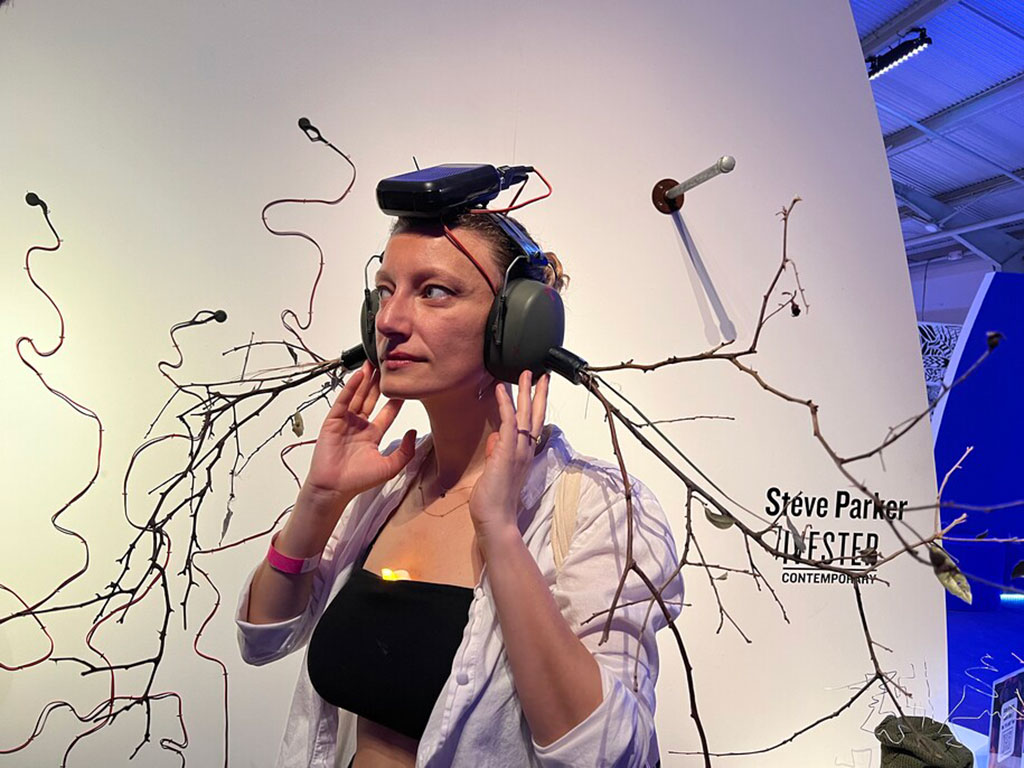OPEN CALL: 2023-24 Human Rights & the Arts Fellowships at Bard College
 The OSUN Center for Human Rights & the Arts (CHRA) invites applications for two one-year research and teaching fellowships in human rights and the arts for the 2023–24 academic year.
The OSUN Center for Human Rights & the Arts (CHRA) invites applications for two one-year research and teaching fellowships in human rights and the arts for the 2023–24 academic year.
Scholars, artists, and activists with teaching experience and a research project are eligible to apply. The 2023–24 fellowships cover a period of one year, i.e. two academic semesters, from July 1, 2023 through June 30, 2024. The positions are based at Bard College, Annandale-on-Hudson, NY, where residency is expected during the course of the academic semester. Fellowships include a full-time salary (65,000. USD), health benefits, and a research budget. Fellows are expected to participate in the academic life of Bard and the Open Society University Network, pursue their own research, and contribute to the CHRA’s public programs.
Fellows will pursue their own research or creative practice within the interdisciplinary and critical framework of the Center, and contribute to the curriculum of the Center’s M.A. Program in Human Rights and the Arts by teaching one course each semester.
The MA Program in Human Rights & the Arts offers a two-year graduate-level interdisciplinary curricular experience that takes stock of the growing encounter between human rights and the arts as fields of both academic knowledge and professional work. The curriculum is grounded in flexible and rigorous graduate-level coursework, involving theory, case studies, and studio classes. In addition, all students are expected to successfully present a research-based academic thesis or artistic performance/film/installation as their capstone project.
The OSUN Center for Human Rights & the Arts (CHRA), at Bard College in New York’s Hudson Valley (occupied homelands of the Munsee and Muhheaconneok people). CHRA aims to stimulate new ways of thinking about the intersection of human rights and the arts; develop new strategies for research, practice, and engagement; and incubate new relationships between activists, scholars, and artists. The Center offers a variety of annual public programming geared toward the MA student, Bard College, OSUN partner institutions, and the general public: a talk series, digital commissions, collaborations with activist groups, workshops, and a biennial festival that takes place at Bard College and across the OSUN network. Featured artists and activists have included Lawrence Abu Hamdan, Kenyon Adams, Cooking Sections, Mohammed El-Kurd, Forensic Architecture, Coco Fusco, Suzanne Kite, Zayaan Khan, Faustin Linyekula, Layli Long Soldier, Ernesto Pujol, Benji Rha, Vivien Sansour, Hamed Sinno, Juliana Steiner, Jordan Weber, and Eyal Weizman, among others.
The goal of the fellowship program is to support outstanding thinkers and practitioners and thus to strengthen research, creation, and teaching at the intersection of human rights and the arts. The Center will award one Fellowship to a practitioner (artistic or activist/advocate), and one to a researcher or scholar, each year. We recognize that these categories are often blurry and encourage applications from those who cannot in advance specify to which group they belong.
Compensation and benefits
Fellows will receive a full-time salary and health insurance. Fellows will also be provided with a research budget, office space, and library access.
Expectations
During the 2023–24 academic year, the Fellows will focus their research or practice on the intersection for human rights and the arts, and work as part of a team of faculty and students in the Center. In addition, the Fellows are expected to: Deliver a public talk during their appointment year on a relevant topic and based on their work. Design and teach one graduate course each semester in the MA Program in Human Rights & the Arts, with the understanding that such courses will be open to the broader Bard College and OSUN communities. Actively participate in the public life of the OSUN Center for Human Rights & the Arts, including taking part in or organizing public events, productions or exhibitions, and workshops or conferences. Be in residence at Bard College or the vicinity, or demonstrate to the program’s satisfaction the ability to provide substantial campus presence to fulfill responsibilities relating to in-person participation (e.g., teaching, office hours, attendance at events, etc.)
Please note that fellows may not hold any other fellowships or visiting positions concurrently, and that the appointments cannot be deferred to a later term.
Qualifications
Applicants should hold a terminal degree or equivalent training and professional accomplishment in their field, have experience teaching or lecturing at the university level, and possess a track record of successful research and scholarship, creative practice, or civic engagement and advocacy.
Application instructions
Candidates should apply online by submitting the following documents to Interfolio here. A cover letter summarizing your career goals, qualifications, current research, and proposed work during the appointment period. The statement should not exceed 1,500 words. Curriculum vitae and list of publications, performances, exhibits, or projects. Teaching statement—not in excess of 500 words and including a reflection on diversity, inclusion, and equality in the context of this Fellowship—along with brief descriptions of two proposed courses. Sample of recent scholarly, artistic, or professional work. Contact information for three professional references. Please include name, title, institutional affiliation, email address and phone number.
Deadline
All materials must be received by Thursday, January 5, 2023, 11:59pm EST. The position begins on July 1, and Fellows are expected to be in residence at the College during the teaching semesters. Questions about the fellowship or about the application process should be sent to chra@opensocietyuniversitynetwork.org
OSUN Center for Human Rights and the Arts, Bard College: 30 Campus Road Annandale-on-Hudson, New York 12504-5000. T +1 845 758 7680, chra.bard.edu.
